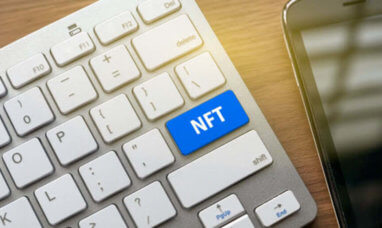No one foresaw the growth of cryptocurrency and the impact it is continuously making in our technological and social ecosystem. Bitcoin has infiltrated the minds of the public and ushered in a new cryptocurrency age.
With Bitcoin being the flagship coin of cryptocurrency, a beginner might wonder things such as what is Bitcoin and where are the legit cryptocurrency investment sites? Here is Bitcoin explained for you.
Definition: What Is Bitcoin?
Unlike fiat currencies regulated by governments and issued by banks, bitcoin is a digital currency that functions independently of government control. This digital currency is a means of exchange, and each transaction is immutably secure and verified with cryptography, otherwise known as encryption.
Encryption transforms plain and meaningful texts into random and meaningless texts – ciphertexts. As mentioned above, Bitcoin was created to serve as an alternative to fiat currency. Thus, bitcoin is largely unregulated by any national authority and has no intermediaries.
Transactions of bitcoin utilize peer-to-peer (P2P) technology. This technology facilitates the transfer of bitcoin from one person to another after the trading parties agree to the worth of the coin. Hence, bitcoin transactions use codes rather than real-world assets like gold and silver. Thus, P2P is a direct exchange of an asset without a bank or government’s involvement.
History of Bitcoin
After the financial crisis of 2008, someone, or some people, with the pseudonym Satoshi Nakamoto created Bitcoin (BTC) by releasing a white paper. As such, the crisis served as the push for bitcoin’s development.
The financial crisis led to a global recession, which resulted from excessive financial market speculation and banks risking dollars in the worth of billions in depositor funds. Accordingly, the released whitepaper was the first step towards creating a digital currency based on blockchains – a distributed ledger technology (DLT). However, in 2009, bitcoin was launched as the first cryptocurrency.
A cryptocurrency quote by Satoshi Nakamoto from the white paper read, “What is needed is an electronic payment system based on cryptographic proof instead of trust, allowing any two willing parties to transact directly with each other without the need for a trusted third party.”
Since then, virtually everyone in the world has heard about bitcoin. It has been largely accepted by many global companies as a means of exchange, including Microsoft, PayPal, and Whole Foods. As of the 27th of October, 2021, the price of each bitcoin is pegged at $59,179.77, according to the Coin Market Cap. Looking at the price of each coin in April 2011 at $1, we can see how the growth of the coin has been exponential, leading to many investors keying into cryptocurrency.
How Does Bitcoin Work?
To generate a bitcoin without buying or exchanging other coins, you must solve a pre-specified mathematical problem. This problem is termed as ‘Hash’ – a 64-digit hexadecimal number, which is equal to or less than the target hash. As such, bitcoin is numeric like 12345.
It is pertinent to know that bitcoin has no intrinsic value, except the value assumed by the parties exchanging the coin. For instance, fiat currency has some specific numbers on them as labels. E.g., you may pull out a $1 note from your pocket with the number G6607091874H. No other note has this number, as determined by the Federal Reserve System. With the $1, you can purchase an item worth the amount, like candy, a cup of coffee, or pay for a ride. Universally, the $1 with the number G6607091874H is $1.
However, the Bitcoin with the number 12345 has a worth agreed by two parties exchanging it, let’s say $10,000. Thus, the difference between the $1 note and bitcoin 12345 is that the dollar note has intrinsic value, worth and exists physically, unlike the bitcoin. Hence, bitcoin is more volatile than fiat currency.
Bitcoin Terms You Should Understand
On any cryptocurrency exchange, bitcoin is symbolized as BTC or, rarely, XBT. Here are other terms you should understand to know how bitcoin works.
Blockchain: Thousands of cryptocurrency transactions are done in a second, recorded in a digital ledger. Each transaction is a block, which is chained as a code to create a permanent record of each transaction. These blocks are immutable, which means a block cannot be changed once a ledger is recorded. Blockchain technology now records more than 10,000 cryptocurrencies apart from bitcoin.
Private and Public Keys: A bitcoin wallet where individuals manage and trade their bitcoins has both private and public keys. These keys allow users to authorize transactions by initiating and signing transactions.
Bitcoin Miners: These are members of the peer-to-peer cryptocurrency platform that independently confirm bitcoin transactions. These miners use high-speed computers that confirm transactions within the space of 20 minutes, and they are paid with bitcoins.
How Is Bitcoin Backed?
Now, you may ask about how this currency works and who is responsible for its operation. Unlike fiat currency that banks and governments regulate, bitcoin is largely unregulated. As such, monetary policy, inflation rates, or growth indicators with traditional currency do not affect the coin.
Bitcoin transactions, buyer and seller information, time and date, total value, and an independent code of each transaction are recorded on blockchain technology. These recordings are regarded as blocks, and blocks are linked together chronologically to form a chain of blocks – blockchains.
Anyone can look at a block on the chain as a public record of a transaction. The blockchain is unregulated by any power – thus, it is decentralized. To understand how this works, consider a Google Doc not owned by anyone but anyone can edit. Anyone with a link can edit the document, and the copy with you is automatically updated.
You don’t need to shudder when you think it is unsafe since everyone could edit it; this attribute makes it secure and trustworthy. This is because before you can contribute to a bitcoin blockchain, most bitcoin miners must first validate your transaction block.
Additionally, blockchain transactions are secure because the encryption pattern that identifies a user is randomly generated, which is highly unlikely to counterfeit. Thus, the randomness of each verification code for separate transactions significantly reduces the chances of any fraudulent activity on a bitcoin transaction.
What Is Bitcoin Mining?
When you add a new bitcoin transaction to the bitcoin blockchain, you have mined a bitcoin. Although it is difficult, bitcoin miners use the PoW (Proof of Work) technique to solve mathematical problems that validate transactions. What miners do is generate a hash – 64 digit hexadecimal number. Bitcoin hash rate refers to the estimated hashes number created by miners when they attempt to solve a bitcoin block.
Hash rate is measured by Hashes per Second (H/s). However, to mine successfully, miners need a high hash rate, which is measured in megahashes per second (MH/s), gigahashes per second (GH/s), and terahashes per second (TH/s). The rewards of the miners are bitcoins to keep them on track in managing the blockchain system. Thus, the miners keep on adding new blocks to the blockchain systems.
Before thinking of mining bitcoin, be aware that it is not as lucrative as in 2009. Then, a block of bitcoin worth 50BTC, 25 BTC in 2012, 12.5 BTC in 2016, and 6.25 BTC in 2020. As such, the reward is slashed by half for every 210,000 blocks – estimated for every four years. Thus, it is more challenging to do and gain from the costs of electricity and computational power required to mine a coin.
Additionally, this reward will keep decreasing as bitcoin transactions increase. Thus, by 2140, it is suggested that all bitcoins will be in circulation, and miners will have no choice but to rely on transaction fees to gain from validating a block.
How Do Bitcoin Investors Make Money?
Bitcoin price is highly volatile, and it obeys the law of demand and supply. Thus, investors buy bitcoins and keep them, hoping that the value of bitcoin in respect to the dollar will be higher than when they buy it. Thus scarcity determines why the cryptocurrency is going up and down. However, it is a difficult and variable prediction. Thus, buying and keeping, apart from mining, are other ways to make money from bitcoin. You can also do your research to see other cryptocurrency stocks to buy apart from bitcoin.
Storing Your Bitcoins: Hot Wallets vs. Cold Wallets
As obtainable in a bank account with fiat currency, bitcoin is stored in wallets. The bitcoin in your wallet ensures you have total control over the private key to your funds. You are also aloof from the risk associated with getting an exchange hack and losing your funds. However, some exchanges are more secure than others. Also, some exchanges have more features like swapping a token with another or storing bitcoin and altcoins. Hence, understand what hot and cold wallets mean before choosing a bitcoin wallet or thinking of the next cryptocurrency to invest in.
Hot Wallets
Online wallets running on devices like phones, tablets, and computers connected to the Internet are hot wallets. These wallets on internet-connected devices are vulnerable because they generate the private keys to your coins. However, hot legit cryptocurrency sites offer quick accessibility and swift transactions but are prone to hacking.
However, you can still secure these wallets by taking necessary precautions, like strong passwords, two-step authentications, and safe internet browsing. This wallet is suitable to hold and transact a small amount of cryptocurrency. Like you would not save all your money in a checking account, but rather a savings account, hot wallets are also used for immediate and swift transactions.
Cold Wallets
Unlike hot wallets, cold wallets are not connected to the internet, resulting in better security. Cold wallets are also called offline wallets or hardware wallets. Cold wallets save your private’s key elsewhere apart from the internet and may come with software that works in parallel so that you can view your portfolio without risking your private keys on the internet.
Paper wallet, a cold wallet, allows you to generate both public and private keys from some websites that you can print out on paper. So, no one will access your portfolio except they have access to your paper. These wallets are for large portfolios and long-term investments.
A hardware wallet is another cold wallet, which is a USB drive device that helps to save your private keys offline. Thus, they are risk-free of the viruses that might reside in your computer. Likewise, your private keys are not connected to the internet, where they may be hacked.
Thus, the two types of cold wallets are more secure than hot wallets.
Buying Bitcoin: The Pros and Cons
Some Advantages of Bitcoin:
-
-
- No government or bank control: everyone investing in bitcoin contributes to the security of the operation. No one controls your personal information and financial data, not even governments.
- Identity theft associated with fiat currencies is limited. Because it is largely anonymous due to cryptographic private keys, fraudsters cannot access your vital info to commit crimes.
- Since no one controls your investment, there is no risk of freezing, charging, or unauthorized demand for your coins.
- Minimal risk of attack: the Bitcoin blockchain is relatively safe due to cryptographic private keys. Before someone can get hold of a blockchain, he must attack 51% of the blockchain. A 51% attack would allow miners to hinder transaction validations, change transaction ordering, or restrict other miners from mining.
- Bitcoin also offers potentials for high returns.
- Bitcoin offers faster transactions and swift international dealings than traditional trading.
- Bitcoin also offers a diversification of investment and greater liquidity.
-
Some Disadvantages of Bitcoin:
-
-
- Governments may regulate, restrict, or prevent the total trading of bitcoin. Countries like China, Russia, Bolivia, Indonesia, Egypt, Nigeria, Turkey, and Bangladesh have banned bitcoin and other cryptocurrencies trading.
- Bitcoin is highly volatile with a high risk of price decline, which is a compelling reason why many outlaw the use as a means of exchange.
- The decentralized nature allows money laundering and illegal payment possible.
- A bitcoin transaction is immutable and irreversible. Hence, it is problematic in fraudulent exchanges, botched transactions, or during attacks. Thus, with no “back” button, fraudulent activities or illegal transactions cannot be prevented once done.
- Bitcoin wallets’ passwords are unrecoverable, so once you forget your password, you cannot lay claim to your bitcoin.
- If a hacker gets hold of your private keys and steals your bitcoin, the transaction is irreversible.
-
Concluding Thoughts
Bitcoin, a cryptocurrency, is a decentralized form of exchange and alternative to fiat currency. There are many legit cryptocurrency sites to buy bitcoin. Due to the fact that it obeys the law of demand and supply, its values will likely increase with respect to the value of the U.S. dollar. Bitcoin is not the only cryptocurrency that promises high returns for investors; altcoins are the next cryptocurrencies to invest in. Always do your research and ensure that you can afford to lose in case the coin drops dramatically in value.
Featured Image: Megapixl








